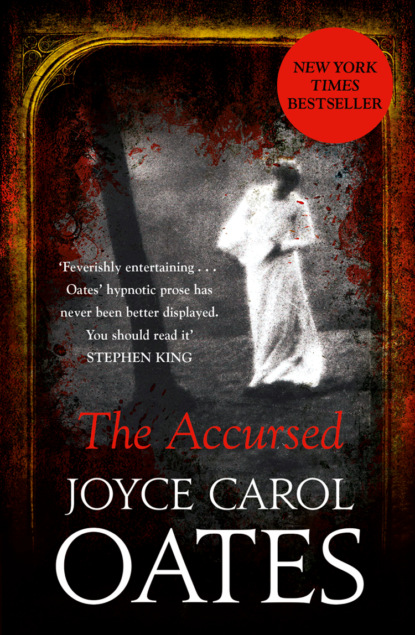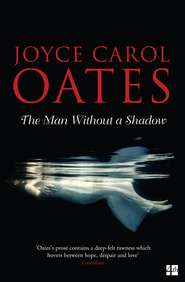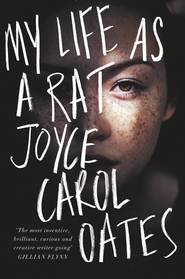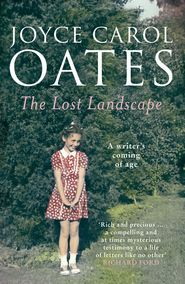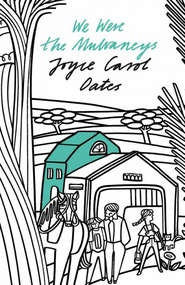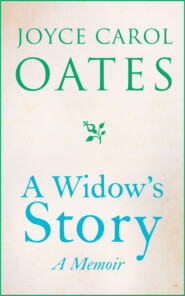По всем вопросам обращайтесь на: info@litportal.ru
(©) 2003-2025.
✖
The Accursed
Настройки чтения
Размер шрифта
Высота строк
Поля
Carelessly then Pearce brushed away most of the flower-debris, not noticing that some curled little petals, and fragments of a stem, remained in an opened copy of Spinoza’s Ethics, at the very beginning of Part IV, Of Human Bondage, or, of the Strength of the Emotions.
CROSSING THE UNIVERSITY campus, at a rapid clip, his broad shoulders hunched in his tweed coat and his head slightly bowed, Josiah was intercepted near the steps of Chancellor Green by the president of the university, Woodrow Wilson, who called out familiarly to him, and who smiled with warmth as if Josiah were one of his family. With a sinking heart Josiah thought Waylaid! Damn.
Of course Josiah did not continue on his way, as he’d have liked; instead, he paused to speak with Woodrow Wilson, or rather, to allow Woodrow Wilson to speak with him.
Wilson was in the company of a stranger, to whom he introduced Josiah: a singularly ugly man Josiah thought him, with a flaccid skin, fish-belly-white, and close-set eyes of some intense though unnatural-seeming color like bronze; and a reptilian manner about the lips, his tongue quick-darting and moist, as he smiled an unctuous smile that Josiah found particularly offensive. Yet it was not possible to escape, for Woodrow Wilson insisted upon introducing the stranger to Josiah, and Josiah to the stranger, as if the exchange gave him inordinate pride.
So it happened, Josiah Slade found himself forced to shake hands with “Axson Mayte,” here identified as a lawyer from Carnahan, Virginia, with an association with the Presbyterian Church, whose services, Wilson told Josiah, he hoped to engage in his altercation with the university’s board of trustees. Josiah, who’d heard only the rudiments of gossip concerning Wilson’s feud with Andrew West, the dean of the Graduate School, and considered the issue entirely trivial, smiled courteously and murmured a friendly/perfunctory response, eager to be on his way; but Dr. Wilson adroitly detained him, by laying a paternal hand on his arm, and inquiring after his family—the health of his parents, and his sister and young cousin, and his grandfather Winslow.
How predictable, these social exchanges! How numbingly repetitive! And yet, how to escape them?—Josiah had a vision of himself breaking free, and running out to Nassau Street.
That is madness. From madness, no turning back.
Dr. Wilson was clearly eager to talk; there would be no easy escape. Despite the presence of the stranger from Virginia, whose gaze was fixed upon Josiah with a discomforting intensity, Wilson began to ask particularly after Annabel, for he knew that Josiah and his sister were unusually close; he said he’d heard a “most distressing, and curious” report the previous day regarding the health of Mr. Cleveland, and wondered if Josiah knew anything about the incident.
Discreetly, Josiah said he did not. No.
Discreetly, Josiah would have excused himself and slipped away, except that Woodrow Wilson detained him with a hand lightly on his arm; all the while smiling at the young man, with the familial warmth of Pearce van Dyck, yet with something more intense and more compelling beneath, a subtle sort of coercion. The conversation flailed about like a small bird in a large cage, as Wilson tried also to draw in “Mr. Mayte.”
(How loathsome this “Mayte” struck Josiah!—his loathsomeness had little to do with mere physical ugliness, for such did not usually offend Josiah, but with the man’s fawning, craven, yet presuming manner, and the euphonious nature of his voice; even the inappropriate sportiness of his clothes—for, though he was Woodrow Wilson’s age or more, with a squat, stocky build, he wore a costume suitable for a Princeton undergraduate: a brick-colored blazer with wide-padded shoulders, and a white shirt and narrow dark tie; peg-top trousers, and circular-toed shoes, and a cap resembling a baseball cap set rakishly on his head. It would not have surprised Josiah to see “Mayte” with an eating-club insignia in his lapel, so absurdly did he try to emulate an undergraduate. When Axson Mayte smiled it was to reveal yellowed teeth of which one, an incisor, hooked a good half-inch below its fellows.
Yet, to Josiah’s shrewd eye, the most repellent touch was the delicate white narcissus worn in Mayte’s lapel, that had begun to turn brown, and to wither.
Though Annabel was admiring of the Wilson daughters Margaret, Jessie, and Eleanor, and always spoke in the most exalted terms of President Wilson, Josiah had never felt comfortable in the man’s presence, for he thought him pompous, and grasping, and ambitious, and far too interested in the Slade family. (Wilson would run for a major political office one day, Josiah believed. And he would want Winslow Slade’s public blessing, as well as some private cash.)
It did not help Josiah’s uneasy feeling about Woodrow Wilson that, some years ago, when he’d been a young boy of about ten, and already a very good softball player, he’d overheard Wilson say to his father, Augustus, that he greatly envied him his manly son; for, as fortune would have it, he had only girls; and the venerable Wilson name was in danger of being lost. (“Yes, your Josiah is the child I would have wanted, if God had seen fit.”)
Now, in Axson Mayte’s presence, Woodrow Wilson brought up the subject of Annabel’s wedding; he could not resist saying how pleased he was, that Jessie would be a bridesmaid; and all of Princeton was anticipating the happy event. Hearing this, Axson Mayte brightened, and said in a buttery Southern drawl to Josiah, “Why, I had not realized that you are Annabel Slade’s brother!—let me shake your hand again.”
This was so ridiculous a request, Josiah would have drawn away in irritation; but Axson Mayte quickly reached out to shake Josiah’s hand a second time. Josiah felt a current of cold run up his arm.
Fortunately, the bell of Old North began to sound. Within seconds undergraduate men swarmed along the path, many of them wearing oddly shaped hats, the arcane insignia of one or another club; there were sophomores “hazing” hapless-looking freshmen; in the roadway, bicyclists sped past. Josiah was able to make his excuses though Woodrow Wilson called after him, almost wistfully—“Please say hello to your grandfather for me, will you? And—of course—your mother . . .”
Hurrying toward Nassau Street, where a stream of horse-drawn carriages and motor vehicles passed, Josiah couldn’t resist glancing back over his shoulder to see the tall thin ministerial figure of Woodrow Wilson beside the squat figure of Axson Mayte—both men gazing after him and engaged in conversation, Josiah hated to think, about him.
Annabel Slade’s brother!—so that contemptible creature had called Josiah. What right had he to make so casual a reference to Annabel, as if he knew her?
Did he know her? But—how?
So shaken was Josiah by this unpleasant meeting, that grated against his sensitive nerves like a fingernail against a chalkboard, he began to feel faint; it was a sensation he’d had in the Craven house, as he’d stared at the fallen and terrified Grover Cleveland, and felt the hairs at the back of his neck stir in a kind of animal sympathy with the old man, that such horrors were imminent in his life, too.
Suddenly, Josiah Slade doubted his strength to walk back to the Manse; and felt obliged to catch the Johnson trolley off Witherspoon, amid a gaggle of chattering women and schoolchildren; and, at the rear, dark-skinned workmen and laborers, some of whom were carrying lunch pails, who glanced up at him with veiled eyes, and faces emptied of expression.
“Hello! Room for one more?”—so Josiah took his seat among the men, at the very rear of the trolley; hoping to relax among them, as he could not relax elsewhere; and trying to take no note that, with his arrival in their midst, the men had abruptly ceased talking.
AUTHOR’S NOTE: PRINCETON SNOBBERY (#ulink_05b64a5e-b89e-5401-9f74-2226af29b0a4)
In our egalitarian American society, it is considered a kind of evil to feel superior to other Americans; though the lower strata of all human societies yearn to feel superior to other, yet lower, strata, still it is sacrosanct to pretend that this is not so; that snobbery, in all its forms, is aberrant as well as evil.
This may be a convenient time for me to provide to the reader some information concerning the subtle yet crucial differentiations in social rank between those persons in our chronicle who belong to the old “county” families, of long-established lineage and wealth, and those of a more recent sort who have but lately, that’s to say within the past century, migrated to the area.
The original category is pilgrims, settlers, or colonists; the second, much vaster, is immigrants.
On one hand we have the old Jersey families of the stature of the Slades, initially inhabitants of the Massachusetts Bay Colony who had moved to the Crown Colony of New Jersey at a time when “Princeton” did not exist, being but one of three small villages—“King’s Town,” “Queen’s Town,” and “Prince’s Town”—on the old pike road between New York and Philadelphia. Along with the Slades, if not rivaling them in reputation and wealth, are the Morgans, the FitzRandolphs, the Bayards, the van Dycks, the Pynes (of the magnificent mansion Drumthwacket, in more recent years the residence of the governor of New Jersey), the several families of Burrs (descended from Reverend Aaron Burr, Sr.)—and others, falling beyond the periphery of this history. That these noble old families predated Princeton University by decades should be kept in mind, for, in its earlier guise as the College of New Jersey, the institution was first founded in Elizabeth, New Jersey, and later moved, in 1748, by the Reverend Aaron Burr, Sr., to Newark; then, a decade later, the college was moved by President Samuel Davies to its present location in the village of Princeton, on Route 27, or Nassau Street as it is called, near the intersection with state highway 206. From this modest beginning, with its close ties to the Presbyterian Church, the university has grown, and grown—and has now overgrown itself, one might say, in a crowded and cramped campus in which “green” is scarcely glimpsed and unsightly high-rise structures fly in the face of the elegant Collegiate Gothic architecture of the earlier era. In the West End of Princeton, to this day, descendants of the old families yet reside, some very nearly anonymously; for time has passed them by, as the admission of women, “blacks,” and a quota-less quantity of Jews to the great university would indicate, a trickle of anarchy at first in that low decade, the 1970s, and now a flood.
Thus, one can see a clear division between the old “settler” families and the swarm of “new persons” who had moved into the area merely to be employed by the university, at decidedly modest salaries.
(It was held against Woodrow Wilson, by individuals like Adelaide McLean Burr, that, being too poorly paid to afford a motorcar, the president of the university was obliged to bicycle much of the time; this is a cruel sort of snobbery, indeed. Yet we must laugh with Adelaide, for she is very witty!) Naturally there was some overlapping as in the case of my father Pearce van Dyck, the son of one of the most distinguished “county” families, who was also a scholar and philosopher of national reputation, with degrees from Cambridge (U.K.) as well as Princeton. To reason more finely, Ellen Wilson was related, on her paternal grandmother’s side, to the Randolphs of Virginia, by way of which she might have claimed a familial connection with the wealthy FitzRandolphs of Princeton, except, we have to assume, Mrs. Wilson lacked the courage to do so, and risk being snubbed.
As to Josiah and Annabel, the principal characters of The Accursed—though they are wholly sympathetic, and indeed very good-hearted individuals, it is inescapable that they, too, are snobs—all unconsciously and helplessly, as they are Slades.
THE UNSPEAKABLE I (#ulink_e34787d9-ace0-5863-bbd3-fff544eba55c)
(Excerpted from the secret journal of Mrs. Adelaide McLean Burr, April–May 1905)
This invaluable journal, transcribed in a secret code which no other historian has “cracked” until now, was originally discovered amid a miscellany of papers, household accounts, and other memorabilia, at Maidstone House, long after Mrs. Burr’s premature death. At the time, inscribed in an eccentric and near-unreadable code, in a spidery hand, in lavender ink, in the Crimson Calfskin Book, the journal was not recognized for its worth.
The present narrator is hesitant to put himself forward as the sole living person capable of reading Mrs. Burr’s journal with full comprehension, yet I think that false modesty is remiss; and rival historians of the period are hereby warned against infringing upon my labors, which are fully protected by copyright.
(I hope it will not seem over-protective of my rights, but I have decided not to reveal to the reader the way in which, after months of frustration, I managed to “crack” Adelaide’s code, which would seem, to the untrained eye, the most egregious gibberish, festooned with eccentric Theosophical symbols and doodles.)
The reader should be informed that Adelaide McLean Burr was stricken with a mysterious “malaise” shortly after her wedding, in September 1891, to Horace Hudiger Burr, Jr., which manifested itself in a variety of physical and mental complaints, including partial paralysis, extreme fatigue, and breathlessness; among the female invalids of Princeton at this time, Mrs. Burr was quite the most prominent, and often sent “bulletins” to friends whom she could not see socially. It was not uncommon that the invalid would ask to be carried downstairs, to greet distinguished visitors at Maidstone House, for instance Mr. and Mrs. Grover Cleveland, when they were new to town, or to visit with a select sisterhood of Princeton ladies at teatime primarily; though it was believed that she had not left the confines of the Maidstone property since returning from her Bermuda honeymoon in October 1891.
Another detail that the reader should know: Maidstone House, the ancestral home of the Pembroke Burrs, who had, like the Slades, originally settled in the Massachusetts Bay Colony, but moved to the Crown Colony of New Jersey in the 1700s, is one of the more striking of the stately homes in the West End of Princeton. It is located at 164 Hodge Road, having been built in 1803 in a quaint (and somewhat forbidding) style of “bastardized” Romanesque and Gothic, in somber-hued granite tending toward the luminous, depending upon the strength of the light. With more than twenty-five rooms in the house proper, and a dozen more in the old carriage house and in the slaves’ quarters to the rear, Maidstone exerts a curious spell upon the observer: suggesting, in its somewhat blunt, foursquare architecture, and its towering chimneys and exceptionally tall, narrow, and “brooding” windows, frequently kept shuttered, an unusual blend of the funereal and the sublime.
As the reader knows, my childhood was passed at 87 Hodge Road, which is but a half-block from Maidstone House. It was a childish fancy, though taken very seriously by our impressionable servants, and other household workers and tradesmen who came often to the house, that Maidstone House was “haunted”—well before Adelaide Burr’s horrific death.
_____ . UNSPEAKABLE!—the incident of which all Princeton whispers this morning.
But how shall a lady inquire of it?
I know not for certain when it took place—(two nights ago?)—& whether the woman to whom it happened—(an outrage, was it?—so delicious!)—was the sort to embark out alone, at dusk; whether she was a resident of Princeton proper, or dwelt in some pokey little village nearby.
How unjust, to be denied this crucial information!—but if the crime against the lady be UNSPEAKABLE how then can it be spoken of, to a lady? Horace will tell me nothing. Horace is grim and close-mouthed like all of his kin. Horace murmurs only, in response to my teasing inquiries, “Nothing is wrong, dear Adelaide, that would concern you”—and so the matter rests; for Horace would shield his Puss from all wickedness, as he has—beloved husband!—for the fourteen years of our union.
_____ . (My handsome curly-mustach’d husband could never guess, in his innocence, how wicked his Puss is, in her heart; how bold & daring & untrammeled her thoughts!)
_____ . An afternoon of tea & tarts & luscious mocha trifles. Yet how dull, when Puss craved only to hear news of the UNSPEAKABLE in our midst, of which ladies are not supposed to know; & the chatter was all of prune-face Dr. Wilson & glad-hander Andrew West quarreling in their silly Teacup. I know, I am considered “rude”—at the very least, “irreverent”—scarcely disguising a yawn at the L E N T I S S I M O of Mrs. FitzRandolph’s gossip; & Cousin Wilhelmina, that overgrown child, shot me a glance of mischievous sympathy while her mother droned on & on accounting of who is for Dr. Lantern-Jaw Wilson & who for Dean Sixty-Two-Around-the-Vest West among the board of trustees; for it suddenly seems, the entire town is divided. Trustees & alumni of the university & powerful widows & of course the Clevelands with their considerable weight (Grover is chair of the board, & it is said strongly favors West), etcetera! Puss consoled herself by eating a half-dozen of the mocha trifles, with dollops of extra cream—which had the effect of making me quite ill that evening, as I should have known. But ah!—what measures Puss will take, out of exquisite B O R E D O M.
_____ . It is teasingly unclear: the UNSPEAKABLE seems to have involved one of our most distinguished West End households!
So cruel & frustrating, no more details are yet reveal’d.
_____ . & another UNSPEAKABLE incident has been hinted-at: this, involving ex-President Cleveland who somehow came to be, so very mysteriously, at the old Craven house on Rosedale Road, in a company of individuals including many of the Winslow Slade family—thus, our leading citizens; a gathering that must have had something to do with the upcoming Slade-Bayard nuptials. But Horace quite disappointed, he seems sincerely to know nothing of this incident which took place only last Sunday.
_____ . Dr. Boudinot comes to visit. In the wake of the mocha trifles such gastric distress, & 18 hrs. malaise, Death is preferable.
Doctor must be fetched by motorcar. Yet another medication is prescribed for Puss. She has not had a clear head in 14 yrs.





